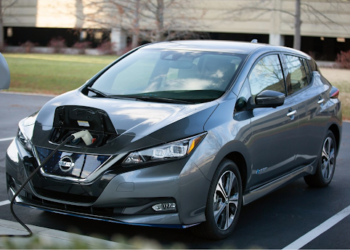Tanzania’s automotive sector is navigating stormy waters as the latest data from the Kenya Motor Industry Association (KMIA) reveals a 13% decline in new vehicle sales over the eight months leading to August 2023.
The industry attributes this downturn to new taxes, regulations, and economic challenges consumers face. This comprehensive analysis explores the factors contributing to this decline and sheds light on the current landscape of Tanzania’s car market.
Impact of New Taxes and Regulations
The KMIA report highlights that new taxes and regulations have dealt a significant blow to Tanzania’s motor industry, resulting in a double-digit decline in vehicle sales. The increased financial burden on consumers, coupled with higher inflation numbers, has eroded disposable incomes, affecting purchasing power in the country.
Monthly Decline in Showroom Demand
Beyond the decline, the KMIA data reveals a monthly decrease in the demand for showroom vehicles. August showed a marginal improvement, with 985 units sold, compared to July’s meager 144 units, which included locally assembled vehicles. This fluctuation underscores the industry’s challenges and the ongoing struggle to stimulate consumer interest.
Sales Performance of Key Players
Major local players, including Isuzu East Africa, CFAO Group (formerly Toyota Kenya), Nissan, Simba Corporation (Simba Motors), and Inchape Kenya Limited, reported 7,621 units sold during the review period. This represents a decrease from the 8,752 units sold in the previous period, indicating a challenging market environment for vehicle manufacturers.
Dominance of Toyota Brands
Despite the industry’s decline, Toyota brands, under CFAO, continue to dominate the Tanzanian market with a 47% market share, surpassing Isuzu at 26.6%. This duopoly accounts for nearly three-quarters of total sales for the year, with Ford, Nissan, and Volkswagen completing the top five.
Popular Models and Brands
While overall sales have declined, specific vehicle brands and models are popular on Tanzanian roads. The Isuzu D-Max and Toyota Hilux emerge as frontrunners, capturing significant market shares of 17.5% and 14.7%, respectively. The Toyota Land Cruiser 70 secures a podium position with an 8.8% market share, showcasing the resilience of certain models in the challenging market.
Market Dynamics and Threats
The review highlights several challenges that continue to pose threats to the Tanzanian auto industry’s survival. Currency fluctuations, unstable interest rates, and soaring fuel costs are significant factors influencing consumer behavior and contributing to the industry’s struggles in the current year.
Conclusion:
Tanzania’s auto industry is grappling with a complex set of challenges, ranging from new taxes and regulations to broader economic factors. The decline in vehicle sales underscores the need for strategic measures to stimulate market demand and address the underlying issues affecting consumers’ purchasing power.
The industry remains at a crossroads, navigating uncertainties in the face of external economic pressures.
Original Article: https://www.the-star.co.ke/business/kenya/2023-09-18-inflation-and-taxes-slow-down-new-vehicles-sales/




